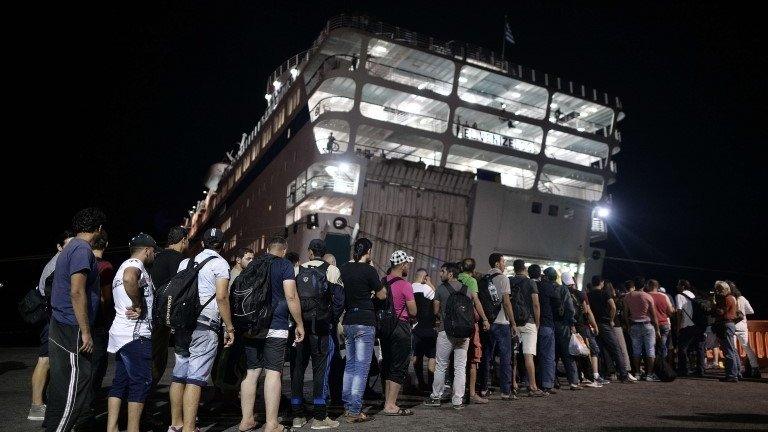Macedonia: State of emergency declared over migrants
- Published
On the platform of Gevgelija train station in Macedonia, people wait for a train, hoping to enter the EU
The Macedonian government has declared a state of emergency in two border regions to cope with growing numbers of migrants, state media have reported.
The move allows the army to be sent in to control the influx.
Macedonia is a major transit point for migrants heading from Greece to wealthier northern EU members.
Some 44,000 people have reportedly travelled through Macedonia in the past two months, many of them fleeing violence in Syria.
The army's involvement would "increase the level of security among our citizens in the two regions and allow for a more comprehensive approach towards the people expressing an interest in claiming asylum," said Interior Ministry spokesman Ivo Kotevski.
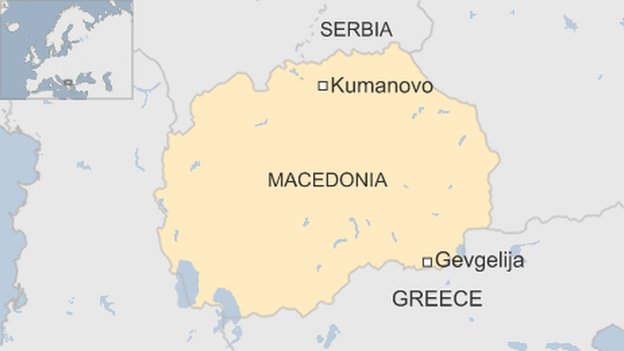
There have been chaotic scenes at Macedonia's southern border with Greece in recent days, as migrants attempt to clamber on to trains travelling towards Western Europe.
"Everyone is rushing for himself. There's a lot of danger of people being killed," Najeem, 24, from Afghanistan told the BBC at Gevgelija station.
Kumanovo, near the Serbian border in the north, has also been declared a crisis region.
Meanwhile in Greece, a government-chartered ferry has arrived at Piraeus port near Athens, after picking up almost 2,500 migrants from islands near the Turkish coast.
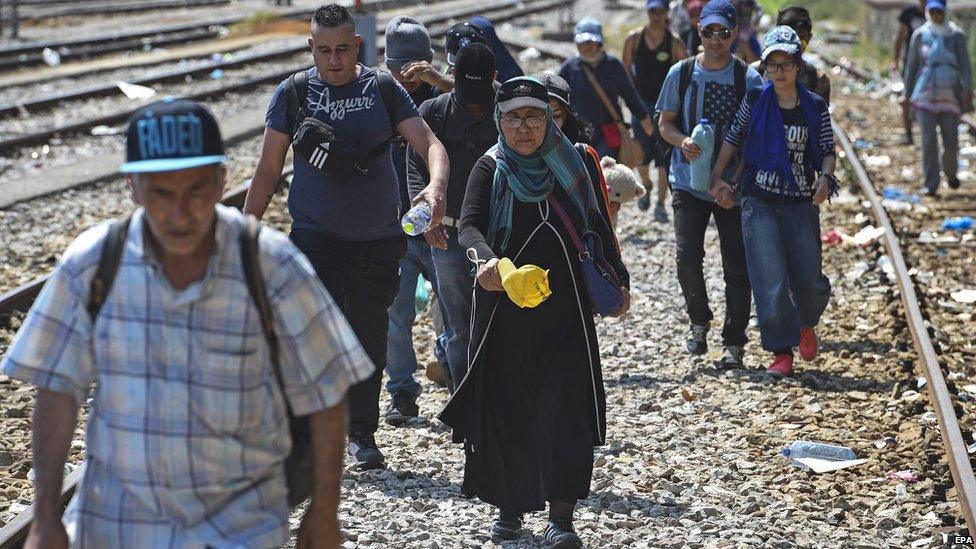
Migrants have been travelling through Macedonia in an attempt to reach northern Europe
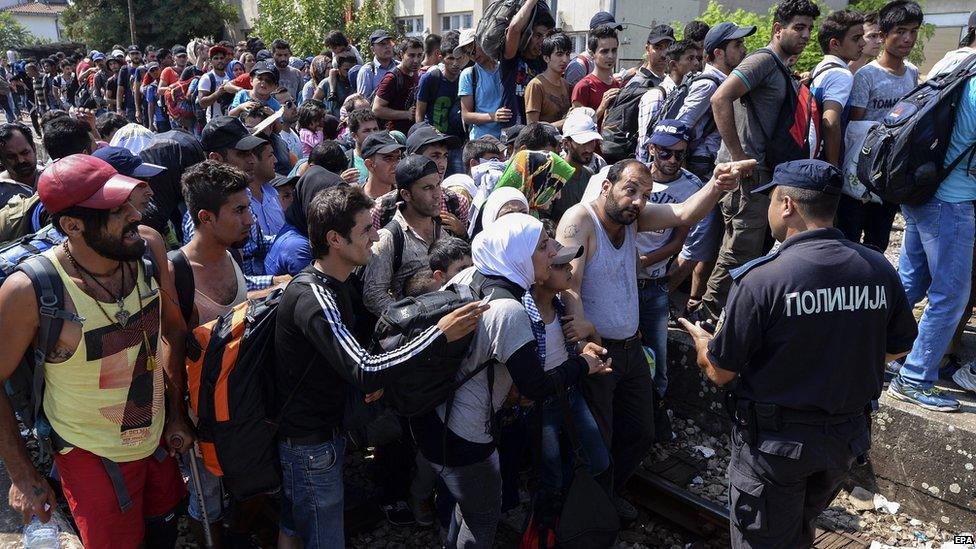
Many have been gathering at Gevgelija station to try and get on a north-bound train
The ferry was chartered in response to worsening conditions on the island of Kos, where small boats have been arriving every day from the Turkish coast.
Although a newly-opened migrant reception centre will take several hundred of the arrivals, most are expected to head north to the border with Macedonia.
Greece has seen almost 160,000 people landing on its shores since January, the UN estimates, with 50,000 arriving in the past month alone.
By boosting security at its borders, Macedonia could create a backlog of migrants for Greece to cope with, analysts say.
- Published3 March 2016
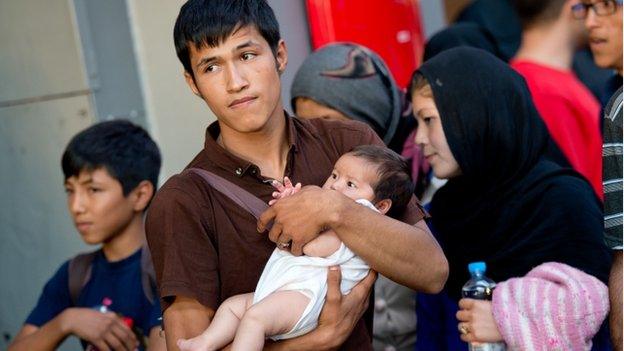
- Published16 August 2015
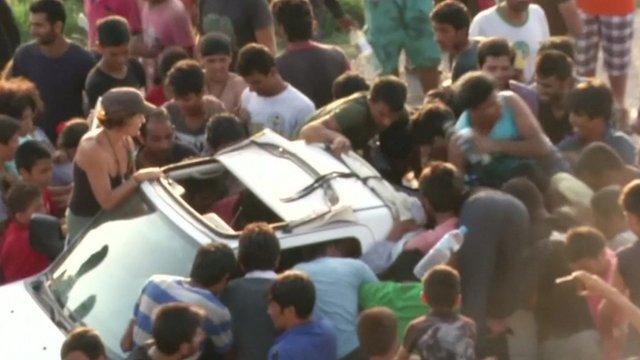
- Published16 August 2015
